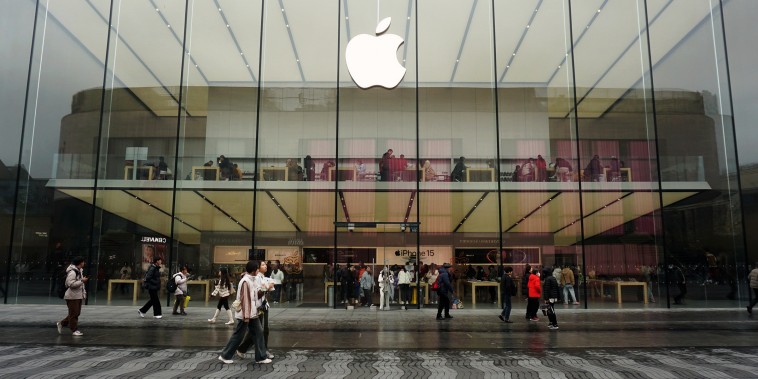In a recent turn of events within the competitive landscape of the smartphone industry, tech giant Apple has lost its top spot as the leading phonemaker to Samsung. This shift in rankings comes as iPhone shipments have experienced a noticeable decline, as reported by a prominent research company.
The shift in the market dynamics reflects a significant change in consumer preferences and the overall demand for smartphones. While Apple has long been synonymous with innovation and trendsetting technology, Samsung’s aggressive product strategies and diverse range of devices have evidently resonated more with consumers in recent times.
One of the primary factors contributing to Apple’s decline is attributed to the drop in iPhone shipments. This decline can be linked to a variety of reasons, including market saturation, increased competition from other smartphone manufacturers, and a potential slowdown in innovation from Apple itself. As consumers seek out the latest features, functionalities, and design elements in their smartphones, Apple’s ability to maintain its market dominance is being challenged.
On the other hand, Samsung’s rise to the top of the phonemaker rankings strongly correlates with its ability to cater to a broad spectrum of consumers. Samsung’s product portfolio includes a wide range of devices that cater to different price points and preferences, providing consumers with more options to choose from. This diverse approach has not only strengthened Samsung’s market position but has also enabled the company to capture a larger share of the global smartphone market.
Additionally, Samsung’s focus on innovation and technology advancement has allowed the company to stay at the forefront of the industry. With the introduction of cutting-edge features such as foldable displays, high-quality cameras, and powerful processors, Samsung continues to push the boundaries of what is possible in smartphone technology. These innovations have undoubtedly played a crucial role in attracting consumers and securing Samsung’s position as the top phonemaker.
As the smartphone industry continues to evolve and adapt to changing consumer preferences, it will be interesting to see how Apple responds to its recent setback and whether the company can regain its position as the leading phonemaker. In the competitive landscape of the tech industry, staying ahead requires constant innovation, strategic decision-making, and a deep understanding of consumer needs. Only time will tell whether Apple can reclaim its top spot or if Samsung will continue to dominate the market with its diverse product offerings and innovative technologies.
In conclusion, the shift in rankings between Apple and Samsung highlights the dynamic nature of the smartphone industry and the importance of staying competitive in a rapidly changing market. As consumer preferences evolve and technology continues to advance, phonemakers must adapt and innovate to maintain their market position and meet the demands of the modern consumer.
